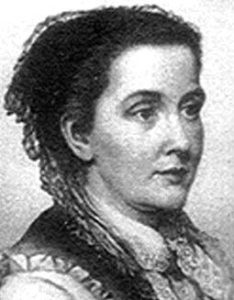
Mothers’ day was originally a day for women to change a prevailing paradigm: The idea of a official celebration of Mothers’ day in the US was first suggested by Julia Ward Howe in 1872. An activist, writer and poet Julia rose to fame with her famous Civil War song, “Battle Hymn of the Republic“.
Julia Ward Howe suggested that June 2nd be annually celebrated as Mothers’ Day and that it should be dedicated to peace. She wrote a passionate appeal to women and urged them to rise against war in her famous Mothers’ Day Proclamation, written in Boston in 1870:
Mothers’ Day Proclamation:
“Arise, then, women of this day! Arise all women who have hearts, whether your baptism be of water or of tears! Say firmly: ‘We will not have questions decided by irrelevant agencies. Our husbands shall not come to us reeking of carnage for caresses and applause. Our sons shall not be taken from us to unlearn all that we have been able to teach them of charity, mercy, and patience. We women of one country will be too tender to those of another country to allow our sons to be trained to injure theirs.’
“From the bosom of a devastated Earth a voice goes up with our own. It says ‘Disarm! Disarm!’ The sword of murder is not the balance of justice. Blood does not wipe out dishonor, nor violence indicate possession.
“As men have forsaken the plow and the anvil at the summons of war, let women now leave all that may be left of home for a great and earnest day of counsel. Let them meet first as women, to bewail and commemorate the dead. Let them solemnly take counsel with each other as to the means whereby the great human family can live in peace, each bearing after his time the sacred impress not of Caesar, but of God.
“In the name of womanhood and humanity, I earnestly ask that a general congress of women without limit of nationality be appointed and held at some place deemed most convenient and at the earliest period consistent with its objects, to promote the alliance of the different nationalities, the amicable settlement of international questions, the great and general interests of peace.”
Julia Ward Howe
Boston 1870
